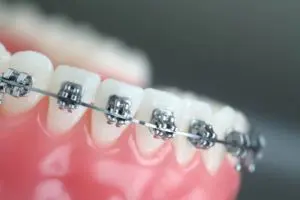Wisdom Teeth Removal: Preserve Your Investment in Orthodontic Treatment


How Wisdom Teeth Affect Oral Health
Third molars come in years after tooth transition (the period of time when adult teeth replace baby teeth). Most patients’ third molars begin to emerge in late teenage years or early adulthood. Since adult teeth are established, there is very little room for wisdom teeth in the mouth. With limited room to emerge, wisdom teeth tend to become “stuck” in the gums and can cause teeth to shift to unhealthy positions.
In addition to an increased risk for decay and periodontal disease, third molars can reverse orthodontic treatment by causing teeth to move out of alignment. Having properly aligned teeth is important for enjoying vibrant oral health. Crowded and overlapped teeth are difficult to keep clean, therefore increasing one’s risk for tooth decay and gum disease. In some cases, patients may require additional orthodontic care to undo the damage caused by wisdom teeth. Not only is wearing braces a second time inconvenient, it is also costly.
Gentle Wisdom Teeth Removal
Many third molar-related oral health problems can be prevented by surgical extractions. An extraction is a dental procedure where the entire tooth (including its roots and crown) is removed. When performing extractions, our team takes great care to ensure patient comfort by using sedative and analgesic medication.
If your dentist or orthodontist has recommended that an oral surgeon remove your wisdom teeth, we invite you to call our practice to schedule a consultation with our caring and experienced staff.